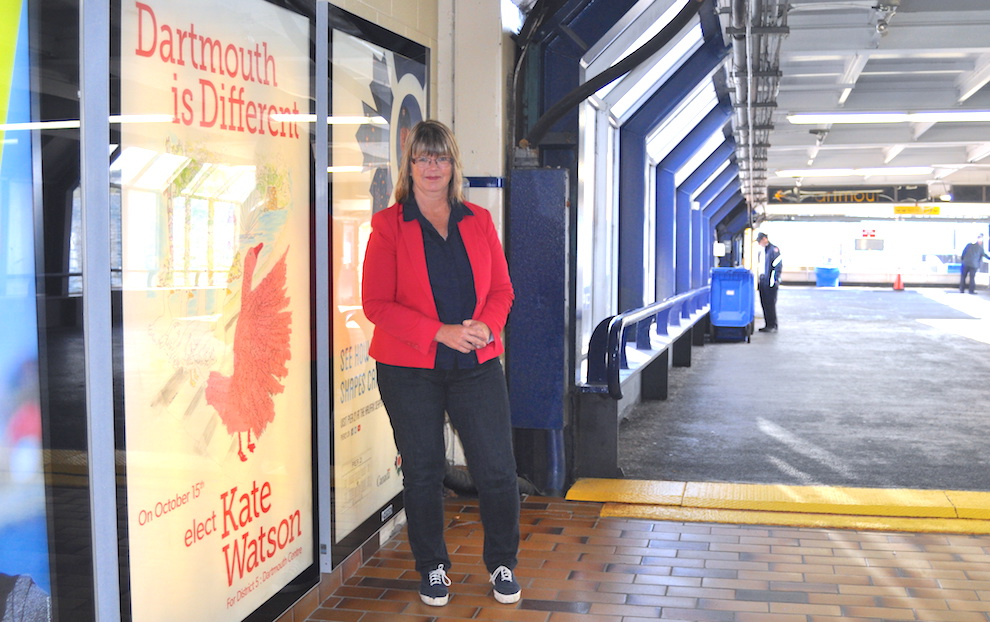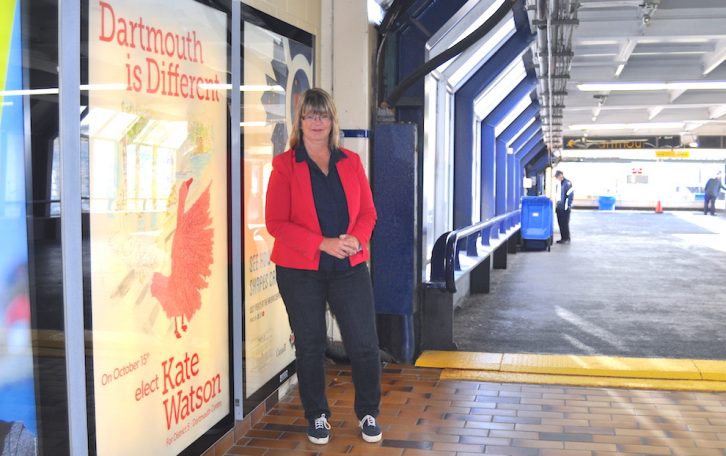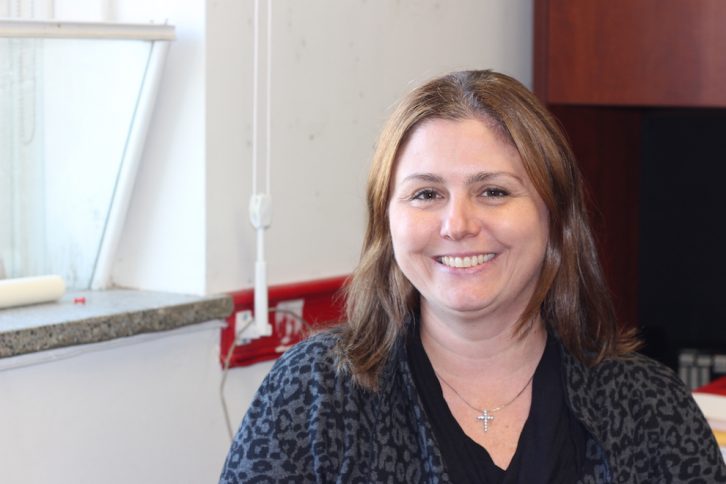HRM Votes
The financial realities of funding a municipal campaign
'If you have fewer dollars ... the less likely you are to be elected'

caption
Kate Watson paid $950 to have her name displayed in the Halifax Ferry Terminal. Commuters heading home to District 5 see her every day.

caption
District 5 candidate Kate Watson paid $950 to display her name in the Halifax Ferry Terminal, where commuters see it every day.At the end of the 2012 municipal election, District 5 candidate Kate Watson had fundraised $550. This time around, she set her sights much higher.
She figures a good campaign would cost between $6,000 and $8,000. District 8 candidate Brendan Sommerhalder thinks the amount needed for a successful campaign in this year’s election is even higher – as much as $12,000.
Watson and Sommerhalder feel the financial pressure. This election (Saturday is polling day) there are a large number of candidates running, including seven in District 8 and eight in District 5. Candidates have to work even harder to make their name known. Flyers, pamphlets, events, posters, signs and online advertising all cost money.

caption
Kristin Good is an associate professor of political science at Dalhousie.“Because it’s independent, non-partisan politics a lot of voters end up voting on name recognition,” says Kristin Good, an associate professor of political science at Dalhousie University.
Sommerhalder agrees and says that money directly relates to the extent that you can reach out to the electorate
“It’s on you to get your name in front of as many voters as you can,” he says.
Money, says Good, reinforces the biases that already exist in municipal politics. She says the advantage held by councillors up for re-election is significant, and money reinforces this advantage.
Stephen Adams, the incumbent in District 11, says he is running his re-election campaign the same way he always has. This year was able to save money by using signs from the 2012 election.
Adams says he has “never solicited a dollar from anyone” and is able to personally finance his campaign. The advantage he has as an incumbent candidate, he says, is an advantage he has “earned.”
There is no magic number in municipal election funding; the amounts councillors elected in 2012 received ranged from nothing to $19,725. Watson’s and Sommerhalder’s targets aren’t far off: the winners in 2012 raised an average of $8,414.
New ways to raise money
Online fundraising has helped candidates find donations in a non-traditional way. Watson is one of eight candidates with an online Gofundme crowdfunding page.
Sommerhalder has had a “slower donation flow” than he’d hoped and because of that, “there are lots of little ideas that I had that will never come to fruition.”
Something he says that has helped him save money is investing in Facebook and Instagram promotion for his campaign. About every two or three days he pays about $10 to have his posts, videos and photos show up in potential voters’ Facebook and Instagram news feeds.
- Sponsored post in Instagram
- Sponsored post in Facebook
For strategic moments he pays a bit more, $20 to $30 for news feed access on days such as the first day of online polling. By the end of the campaign he expects to have spent $2,000 on social media promotion.
Watson says she has learned a lot about fundraising since the last election.
“You have to realize that people want to buy into what you’re doing,” she says. “It’s important to open yourself up to that.”



